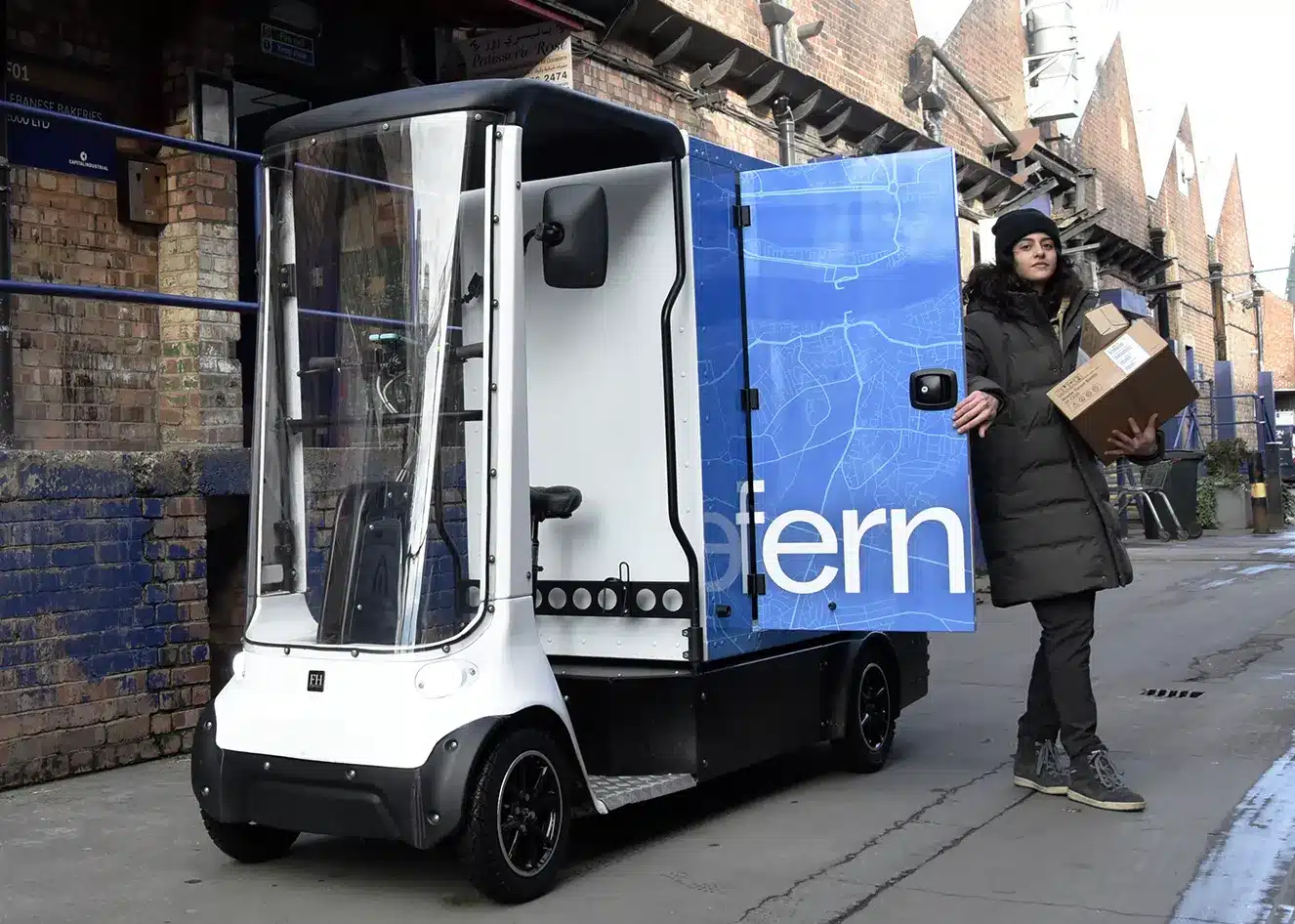This guide provides a comprehensive look at implementing these conceptual eco-friendly kiosk vehicles from start to finish, focusing on the transformative Fernhay’s eQuad model. As cities continue to grow, the eQuad could be a pivotal element in reshaping urban delivery systems with an eye towards sustainability and efficiency. The adoption of such innovative solutions is crucial as it directly contributes to the reduction of urban pollution and traffic congestion.
Understanding the eQuad: A Green Revolution in Last-Mile Delivery
What is the eQuad?
Originally designed to enhance last-mile delivery, it is a compact, electrically powered vehicle that promises to reduce carbon footprints while maintaining efficiency in urban settings. Its small size and agile nature make it ideal for navigating crowded city streets, delivering goods directly to consumers without the environmental toll associated with traditional vehicles. Adopting one could significantly help reduce urban congestion and pollution. The vehicle’s unique design and capabilities make it a perfect fit for modern urban environments looking for sustainable transport solutions.
The Benefits of Implementing the eQuad
- Reduced Environmental Impact: The eQuad operates on electric power, significantly cutting down emissions compared to combustion engines.
- Increased Efficiency: Its design is optimised for quick and efficient deliveries in urban landscapes, where conventional delivery vans might struggle.
- Cost-Effective Operations: Lower running costs than traditional vehicles due to reduced fuel consumption and maintenance needs.
- Enhanced Public Image: Companies using the eQuad can boost their corporate social responsibility profile by adopting greener technologies. This shift not only benefits the environment but also enhances the brand’s appeal to eco-conscious consumers. By implementing such innovative technology, businesses can play an active role in the global movement towards sustainability.
Planning Implementation
Assessing Urban Infrastructure
Before integrating eQuad vehicles into your delivery fleet, assess the urban infrastructure. Key considerations include the availability of charging stations, traffic conditions, and the typical size of delivery loads. Preparing the infrastructure to support these vehicles is crucial for seamless operations. Effective planning ensures that the transition to eco-friendly vehicles is both smooth and sustainable. The proactive adaptation of urban landscapes to accommodate electric vehicles is an essential step in future-proofing city logistics.
Regulatory Considerations
Understanding local regulations is vital. This includes zoning laws, traffic regulations, and any potential subsidies for eco-friendly transportation solutions, which could make the implementation of eQuads more feasible and attractive. Navigating these legal pathways can greatly enhance the operational viability of introducing eQuad vehicles into the market. Compliance with these regulations not only facilitates smoother operations but also ensures that the introduction of eQuad into the market is met with regulatory support.
Operational Strategies for eQuad Deployment
Training and Maintenance
Proper training for drivers is essential to ensure safe and efficient operation of the eQuad. Additionally, establishing a routine maintenance schedule helps in prolonging the lifespan of these vehicles, maximising your investment. Continuous education and upkeep will play critical roles in the success of the eQuad deployment. Effective training programs will equip operators with the necessary skills to optimise the performance of these eco-friendly vehicles.
Route Optimisation
Leveraging GPS and routing software can enhance the efficiency of eQuad deliveries. By optimising routes, businesses can minimise delivery times and reduce the energy consumption of their fleet. This not only improves operational efficiency but also contributes to greater customer satisfaction. Route optimisation also plays a crucial role in reducing unnecessary mileage, which directly contributes to lowering the overall carbon emissions of the delivery process.
Measuring the Impact on Sustainability Goals
Establishing Key Performance Indicators (KPIs)
Set clear KPIs to measure the effectiveness of the eQuad in achieving sustainability goals. These might include reductions in CO2 emissions, fuel savings, and improvements in delivery times. Regular monitoring and reporting of these indicators will help maintain accountability and inspire continuous improvement. Transparent reporting on these metrics can also bolster stakeholder confidence and support from the community, reinforcing the value of investing in sustainable technologies.
Continuous Improvement
Regularly review performance data to identify areas for improvement. This could involve investing in more advanced technologies or tweaking operational strategies to further enhance efficiency and sustainability. Such proactive measures ensure that the eQuad remains at the cutting edge of sustainable delivery solutions. Continual refinement of these strategies will not only optimise the operational effectiveness of eQuad vehicles but also ensure they remain aligned with evolving environmental standards and expectations.
Conclusion
The integration of eco-friendly kiosk vehicles is a forward-thinking step for businesses aiming to improve their delivery efficiency and environmental impact. By following this comprehensive guide, companies can effectively plan, implement, and maximise the benefits of these innovative vehicles, contributing positively to urban sustainability efforts. The ongoing commitment to these practices will not only fulfill current environmental and business needs but also pave the way for future innovations in eco-friendly transportation. As the eQuad becomes more integrated into daily operations, its impact on reducing urban emissions and promoting sustainability is expected to grow, marking a significant advancement in the quest for greener cities.

